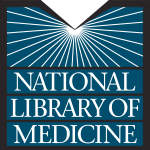- Industrie: Library & information science
- Number of terms: 152252
- Number of blossaries: 0
- Company Profile:
The National Library of Medicine (NLM), on the campus of the National Institutes of Health in Bethesda, Maryland, is the world's largest medical library. The Library collects materials and provides information and research services in all areas of biomedicine and health care.
Triple-layered structure on which epithelium sits: it consists of an electron dense layer (lamina densa) between two electron transparent layers (lamina lucida). The lamina densa is composed of type IV collagen and the lamina lucida contains the glycoprotein laminin.
Industry:Biology; Chemistry
Effect of finite duration occurring rapidly (usually in the first 24 h or up to 14 d) following a single dose or short exposure to a substance or radiation. Note: Acute effects may occur continuously following continuous dosing or repeatedly following repeated dosing.
Industry:Biology; Chemistry
Indicator signaling an event or condition in a biological system or sample and giving a measure of exposure, effect, or susceptibility.
Note: Such an indicator may be a measurable chemical, biochemical, physiological, behavioral or other alteration within an organism.
Industry:Biology; Chemistry
Species or group of species which is representative and typical for a specific status of an ecosystem, which appears frequently enough to serve for monitoring and whose population shows a sensitive response to changes, e.g., the appearance of a toxicant in an ecosystem.
Industry:Biology; Chemistry
Substance which inhibits the action of acetylcholinesterase (EC 3.1.1.7) and related enzymes which catalyse the hydrolysis of choline esters: such a substance causes hyperactivity in parasympathetic nerves.
Note: Examples include organophosphate and carbamate pesticides.
Industry:Biology; Chemistry
1. Process by which a substance arrives at a particular organ or tissue site, for example the deposition of particles on the ciliated epithelium of the bronchial airways.
2. Process by which a substance sediments out of the atmosphere or water and settles in a certain place.
Industry:Biology; Chemistry
Occurrence which causes an adverse effect.
Note: An adverse event in clinical studies is any untoward reaction in a human subject participating in a research project; such an adverse event, which may be a psychological reaction, must be reported to an institutional review board.
Industry:Biology; Chemistry
Continuous or repeated measurement of early biological effects of exposure to a substance to evaluate ambient exposure and health risk by comparison with appropriate reference values based on knowledge of the probable relationship between ambient exposure and biological effects.
Industry:Biology; Chemistry
1. Reactions involving the oxidation of organic substrates to provide chemically available energy (for example ATP) and to generate metabolic intermediates.
2. Generally, process of breakdown of complex molecules into simpler ones, often providing biologically available energy.
Industry:Biology; Chemistry
1. Reactions involving the oxidation of organic substrates to provide chemically available energy (for example ATP) and to generate metabolic intermediates.
2. Generally, process of breakdown of complex molecules into simpler ones, often providing biologically available energy.
Industry:Biology; Chemistry
